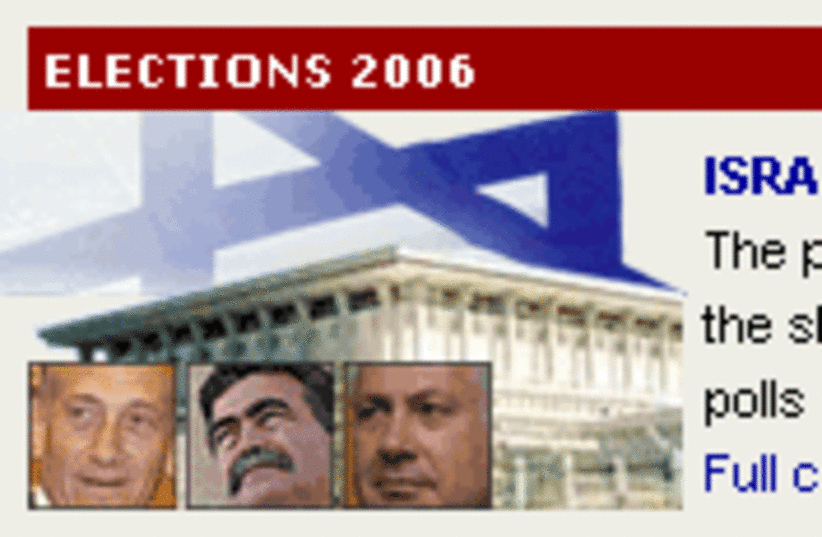| JPOST.COM HIT LIST | |
| JPost.com's most popular articles this past week |
Small parties unhappy with polls
Besides Green Leaf, no party outside the Knesset will pass the voting threshold.


| JPOST.COM HIT LIST | |
| JPost.com's most popular articles this past week |